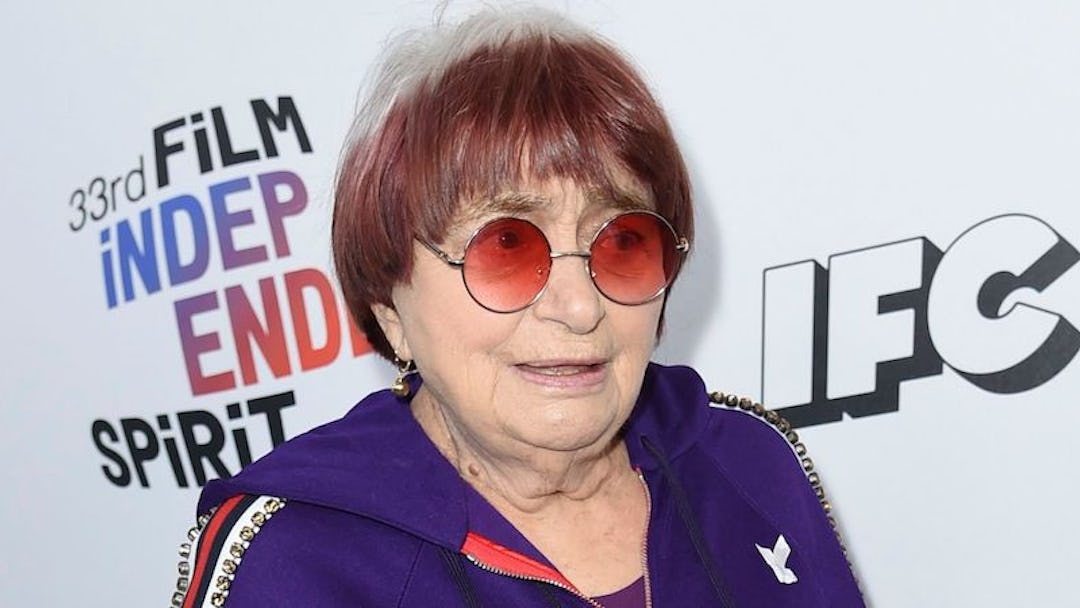Indispensable French director, installation artist, and photographer Agnès Varda does not make general comments on her films or their subjects, because her chimerical work is ever-shifting. Varda’s films are experimental, though you can see some of the artist’s shared interests amongst the works highlighted in the Film Society at Lincoln Center‘s documentary-focused Art of the Real sidebar retrospective, The Actualities of Agnès Varda.
Since 1955’s La Pointe Courte, her debut feature and the film that many argue kick-started the French New Wave, Varda’s style changed as her interests did. She documented her trip to Cuba in 1963 and filmed Black Panther protests in 1968 Oakland. The itinerant Varda’s formal tinkering matched her fascination with American counterculture in both fiction and documentary films like 1969’s Lions Love (… and Lies) and 1981’s Mur murs. Between these two works, Varda returned to Paris in the ’70s, where she made fanciful docu-hybrids like Daguerréotypes, a portrait of Varda’s neighbors on Paris’ rue Daguerre — also home of her production company Ciné-Tamaris.
Varda’s tireless curiosity and impish playfulness may have been a product of her earlier work in Paris, but her fluid style continues to change. Doc-fiction films like 1987’s Kung-fu master! and Jane B. par Agnès V. (1988) — both of which will be re-released soon by Cinelicious Pics — are just as modern and impossible to classify as they ever were.
Flavorwire had the privilege of emailing five questions to the oracular Varda, who talked about everything from life in Los Angeles to her favorite nickname. The Actualities of Agnès Varda screens April 17-24. Visit SundanceNow Doc Club to explore Agnès Varda and Personal Cinema, a digital program that includes the miniseries From Here to There — a chronicle of Varda’s travels around the world and the global contemporary art scene.
Photo by Lucy Nicholson/AP/REX/Shutterstock
Flavorwire: You once said: “I’ve always been like this — trying to find adventure where it’s still in its first élan — the first spring.” What do you, as a storyteller involved in your own adventures, see as the next big adventure that’s currently being explored by other filmmakers (or perhaps hasn’t yet been discovered by others)?
Agnès Varda: For some film directors every new film is an adventure. Not many of them see a new film as a new experiment or a new approach to the language of cinema, which is what I am interested in.
In a sense you’ve had three lives or three identities: as a photographer, a filmmaker, and now, as an artist who makes film and visual art. Exploring intersecting identities is a common approach for artists, but you have always been more interested in collective or communal identities — especially those that are on the margins (such as The Gleaners & I) — and the internal life we all share. How do you know when you’ve captured the true essence of someone or something on film?
Who can pretend having captured the real essence of someone? Every person is a jigsaw puzzle, and we understand or capture some pieces, but other will always be missing. What I try is to present people and situations through different media, erasing the borders between documentary and fiction, black and white and color, still images and moving ones. It seems to me that it gives some options to the viewers to discover or approach one person — fictional or not — or a group of people sharing a common social identity.
Your movies Lions Love (… and Lies), Black Panthers, Mur murs, and Uncle Yanco are a time capsule of Los Angeles during a transformative period, but also your own life. What French ideologies or sensibilities did you bring to Los Angeles? How did your lens on Los Angeles transform the city through cinema?
I have loved my two life sections in California, and especially LA. Being a curious person, I was looking for inventive shapes or styles of cinema to share my observations and discoveries.
Your presence in your films is such an integral part of your work. You are living cinema. I imagine that one day someone will honor your life’s work in a biographical film. How does that prospect make you feel? If you could choose an actress or actor to play you in a film, who would it be?
My voice or sometimes my occasional presence in my films is part of my editing, an essential part of my filmmaking.
Have you seen The Beaches of Agnès? I tried a self-documentary portrait covering my life and work over 80 years. I wouldn’t like a fiction or biopic about me. Please! At least wait for my death.
Do the kids still call you “Mamie Punk?”
It was actually Mamita Punk, sometimes only MAMITA. I love it!
